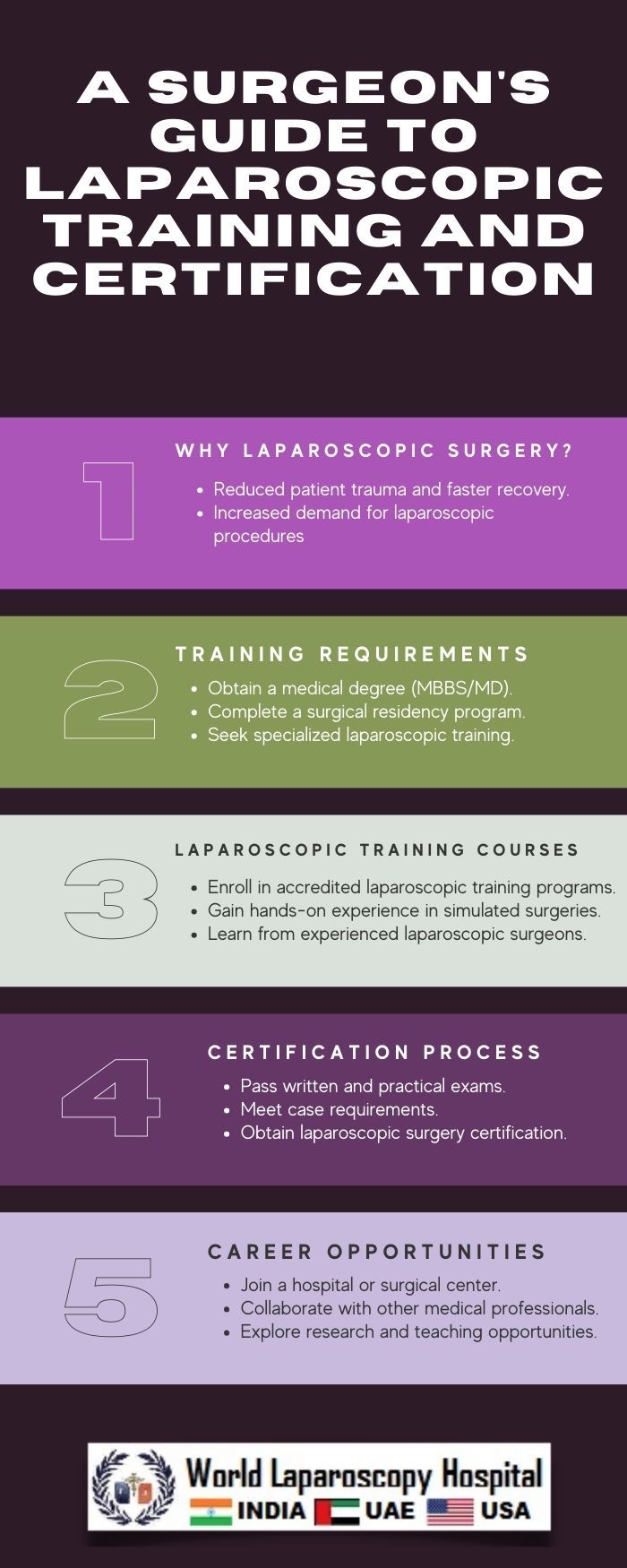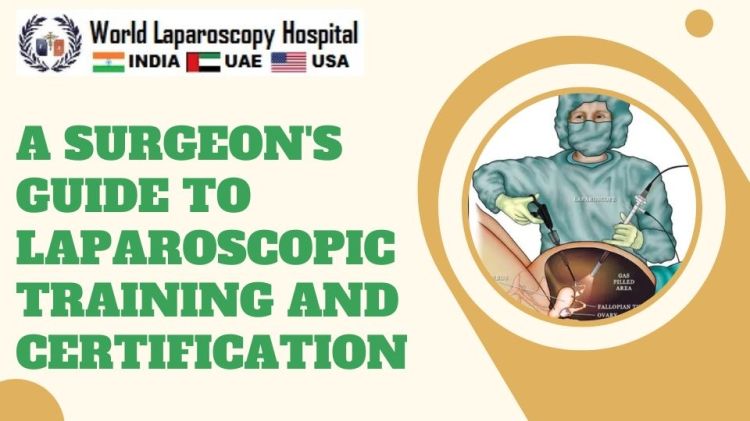Title: A Surgeon's Guide to Laparoscopic Training and Certification
Introduction
In the ever-evolving field of surgery, laparoscopic techniques have revolutionized the way many procedures are performed. As a surgeon residing in Gurugram, you understand the importance of staying updated and continually improving your skills. This article serves as your comprehensive guide to laparoscopic training and certification, helping you navigate the intricate world of minimally invasive surgery.

Understanding Laparoscopy
Laparoscopy, also known as minimally invasive surgery or keyhole surgery, involves performing surgical procedures through small incisions with the assistance of a camera and specialized instruments. This section delves into the fundamentals of laparoscopy:
The Evolution of Laparoscopy
- A brief history of laparoscopic surgery.
- Advantages of laparoscopy over traditional open surgery.
Common Laparoscopic Procedures
- Explore the wide range of surgical procedures that utilize laparoscopic techniques.
- Highlight the benefits for patients, such as reduced pain and shorter recovery times.
Laparoscopic Training
Mastering laparoscopic surgery requires dedicated training and practice. This section outlines the essential steps for surgeons like you to develop proficiency in laparoscopy:
Academic Foundations
- Theoretical knowledge and understanding of laparoscopic principles.
- Recommended textbooks and online resources.
Hands-on Training
- The importance of hands-on experience with laparoscopic simulators.
- Enrolling in laparoscopic training courses and workshops.
Mentorship and Observation
- Learning from experienced laparoscopic surgeons.
- Observing live surgeries and participating as a surgical assistant.
Skill Development
- Tips for improving hand-eye coordination and instrument manipulation.
- Practicing basic skills like camera control and tissue dissection.
Laparoscopic Certification
Certification in laparoscopy not only validates your skills but also opens up new opportunities for your surgical career. This section provides a comprehensive guide to the certification process:
Eligibility Criteria
- Educational and training requirements for certification.
- Different certification bodies and their specific criteria.
Written Examinations
- Preparing for written exams that test your theoretical knowledge.
- Study strategies and recommended resources.
Practical Assessments
- Navigating the practical skills assessment.
- Tips for performing laparoscopic procedures under scrutiny.
Case Log and Documentation
- Keeping a detailed log of your laparoscopic cases.
- Documenting surgical outcomes and complications.
Staying Current in Laparoscopy
Continuous learning is essential in the medical field. This section discusses strategies for staying updated and enhancing your laparoscopic skills:
Conferences and Workshops
- Attending laparoscopic surgery conferences and workshops in Gurugram and beyond.
- Networking with experts and peers.
Subspecialization
- Exploring subspecialties within laparoscopy, such as bariatric surgery or colorectal surgery.
- Obtaining additional certifications in specialized areas.
Research and Innovation
- Contributing to laparoscopic research.
- Incorporating innovative techniques into your practice.
Challenges and Future Trends
Laparoscopy is a dynamic field with ongoing challenges and exciting developments. This section explores some of the challenges surgeons face and the future trends in laparoscopic surgery:
Challenges
- Discussing common challenges in laparoscopy, such as limited haptic feedback.
- Strategies for overcoming these challenges.
Robotic Surgery
- The emergence of robotic-assisted laparoscopic surgery.
- The potential benefits and drawbacks of this technology.
Artificial Intelligence and Augmented Reality
- The role of AI and AR in laparoscopic surgery.
- How these technologies can enhance surgical precision.
Conclusion
As a surgeon living in Gurugram, your journey towards mastering laparoscopic surgery and obtaining certification is a path to excellence and patient care. This guide has equipped you with the knowledge and resources to embark on this journey, ensuring that you stay at the forefront of minimally invasive surgery. Continuous learning, hands-on training, and a commitment to excellence will undoubtedly pave the way for a successful career in laparoscopy.
